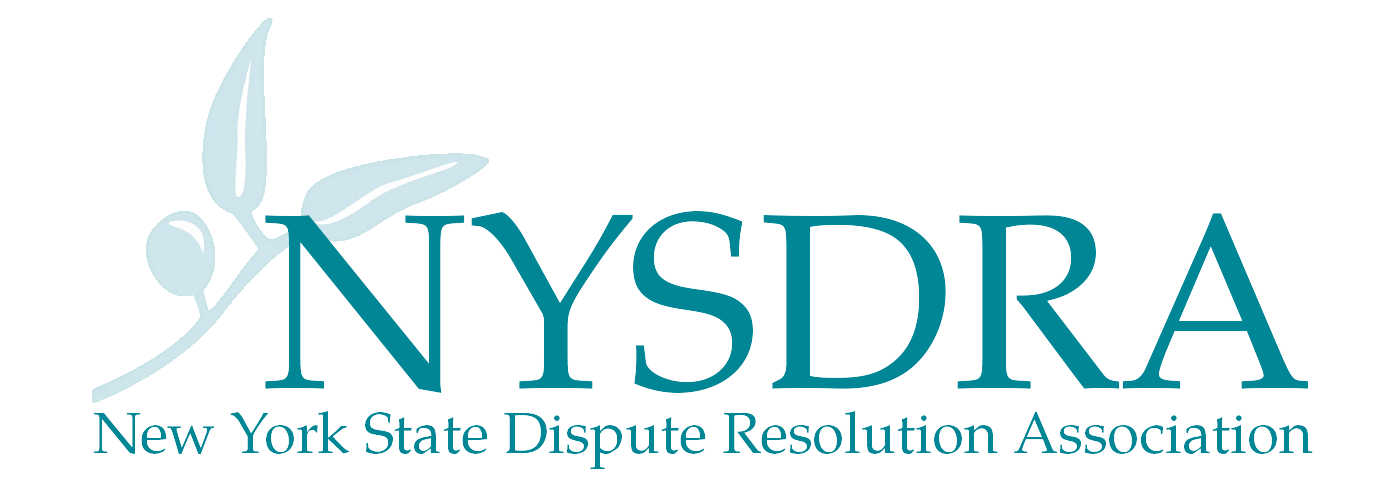On the Right Track? Or, Still Waiting for the Paradigm Shift.
On the Right Track? Or, Still Waiting for the Paradigm Shift.
Posted By Charlotte Carter, NYSDRA Executive Director, Wednesday, June 17, 2015
Updated: Wednesday, June 17, 2015
Many decades ago, I discovered “ADR” after representing feuding parents in a heartbreaking family court case as part of my law school clinic. The parents used the tools they learned in court to attack each another and maximize damage. Their children suffered with the resulting mental, emotional, and physical manifestations. Two fine institutions - the legal system and the family - were on a disastrous collision course. There had to be a better way to manage parental conflict and to protect children.
I spent the next semester reading and writing about ADR. That independent study changed my life goals and direction. It was clear that the legal system, rooted in rights-based litigation, was good at resolving many disputes. However, it was not always suited to resolving conflicts that involved restructuring important relationships. ADR offered potential for collaborative problem solving, and preserving personal and business relationships. Dispute resolution faced legitimate challenges about the delivery of justice, conflict with the mainstream legal community, and problems with scaling up design, funding and implementing of programs. Nevertheless, a shift towards social justice seemed desirable and inevitable.
Fast forward, and we are still waiting for that paradigm shift. And still wondering if we are on the right track. If so, why is progress and support for a more effective, accessible, and fair justice system so slow? Why isn’t mediation a common, or even mandatory, first step for more disputes? Why are we still the “alternative,” when as a young friend observed “Oh, you mean what you do is actual dispute resolution?”
I don’t know.
What I do know is that decades of experience as a community mediator and another decade with NYSDRA have only reinforced my early convictions and excitement. My mentors have been the folks who were willing to give it a try. It is a challenge and a privilege to sit with them and witness the hurt, anger, misunderstanding, mistrust, and mean-spiritedness we all feel in conflict. Gradually, the energy shifts in response to the reflections, questions, or interventions that resonate in the room. Surprisingly often, we have the honor to see those same folks reach deep into reservoirs of hope, trust, and creativity that had been temporarily inaccessible. Collaborative problem solving becomes manifest.
So there I go again, testifying to the converted. What do we need to do differently to juice up that paradigm shift? Here are a few suggestions:
- • Walk that talk, model that shift: Use mediation in your own life to address unresolved conflict, or for planning purposes, especially where there are complex substantive matters, important relationships and/or high emotions involved.
- • Talk the walk: Educate others by catching them doing it right. Notice when people around you are using good skills in communication, negotiation or conflict management. Tell them what they did and why you noticed. (Thank you to Dan Weitz and Sheila Sproule of OCA/ADR for their workshop at NYSDRA’s Annual Conference).
- • Promote and challenge: Ask a roomful of mediators if they utilize mediation and how often. (Once for your divorce is not enough!) Urge your family, friends, and acquaintances to use dispute resolution. Look for opportunities to promote mediation to manage conflict and change in your communities.
- • Get out of our box: Talk to people in other professions, businesses, or in communities that are different from your own. Ask questions, listen closely, and then explain dispute resolution in new and relevant ways. Lose the jargon. Promote our values, skills, and services with other social causes or charities.
- • Stop social grooming and preaching to the converted. Don’t assume that the public or other professionals understand or need your services. Invite yourself to the table. Don’t be neutral about your profession.
- • Talk to power: Commit to building awareness and solidarity. Join organizations involved in mediation advocacy and outreach. Communicate regularly with policy and decision makers on every level.
What is on your list? What ideas do you have for increasing the effectiveness and visibility of dispute resolution? I’ll be exploring some of the suggestions in more detail in future posts. Please feel free to comment below.
